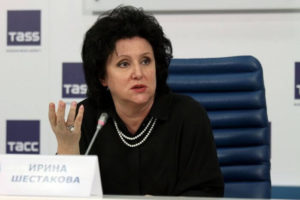
Author: Anastasia Petrova, Russia
July 28 is the World Hepatitis Day. According to Irina Shestakova, chief external infectious disease specialist at the Russian Ministry of Health, the number of people infected with hepatitis C in the country may reach 5.8 million. Last year, only less than 0.2% of people with this disease received treatment.
Hepatitis C spreading to the “general population”
As estimated by the World Health Organization (WHO), about 71 million people globally are infected with hepatitis C. In 2015, 1.34 million of people all over the world died of hepatitis-related conditions. This is more than the number of AIDS-related deaths and is comparable only with the number of people who lost their lives to tuberculosis. The morbidity due to the consequences of hepatitis C continues to grow.
The incidence is also growing. Hepatitis C has long gone out of socially disadvantaged groups to the “general population.” The virus may be transmitted through non-sterile equipment in a dentist’s office, nail salon or during any medical surgery involving contact with blood. At the same time, affected by this severe disease, people often lack reliable information about the virus, not to mention the opportunity to receive effective treatment.
In Russia, it is difficult to access the therapy, while the regimens which are offered are not in line with the international guidelines and have side effects along with the low treatment success rates. Thus, the WHO recommends substituting pegylated interferon, which is widely used in Russia, with direct-acting antivirals (DAAs). However, the process of introducing modern treatment methods in the country is slow.
Thirteen times fewer patients treated
In 2017, only 0.2% of the total estimated number of people with hepatitis C received treatment in Russia. According to the annual report on hepatitis C drugs procurement monitoring in Russia in 2017 published by the International Treatment Preparedness Coalition in EECA, last year 9,661 people were able to access the therapy. This coverage is 13 times less than it is required to stop transmission of the disease.
“Low coverage is due to the low interest of the state. All the activities in response to hepatitis C are the initiatives of the regions. There is no targeted funding or actions to eliminate hepatitis at the national level. Another part of the problem is the pricing policy of the corporations, which are monopolists on the market. In our country, their drugs are protected by patents and they are free to set any prices they want to,” comments Sergey Golovin from the International Treatment Preparedness Coalition in EECA.
As estimated by the Coalition, the cost of therapy with DAAs varies from about 480 thousand to one million Russian roubles. In Russia, the cost of drugs is much higher than in Brazil, India, Argentina or Thailand.
“Many countries made a decision to eliminate hepatitis C. Developed countries offer treatment with modern drugs to all people who need it. In some developing countries, patent owners allowed companies to produce and sell copies of their drugs (generics) at very low prices. As for Russia, it got stuck somewhere between the developed and developing countries,” explains Sergey Golovin.
No action plan

In 2016, the WHO approved the Global Health Sector Strategy (GHSS) on Viral Hepatitis for the period of 2016-2022. The Strategy is aimed at eliminating the epidemic of hepatitis by 2030 through the reduction of new cases by 90%. The document has been signed by all member states, including the Russian Federation. However, there is still no action plan at the country level.
For quite a while, representatives of patients’ organizations have been calling on the government to adopt a National Strategy on Viral Hepatitis, which should be adopted by Russia in line with the Global Health Sector Strategy on Viral Hepatitis and the World Health Assembly Resolution on Viral Hepatitis.
According to Aleksey Lakhov, Advocacy Officer of Together Against Hepatitis NGO, implementation of the Strategy will allow raising the awareness on viral hepatitis prevention and in general improving the system of epidemiological surveillance and control over hepatitis transmission in Russia.
Such Strategy should contain a set of measures aimed at improving hepatitis C diagnostics and detection as well as clear indicators of reducing hepatitis C incidence, prevalence, and mortality rates and covering patients with therapy based on the modern treatment standards.



